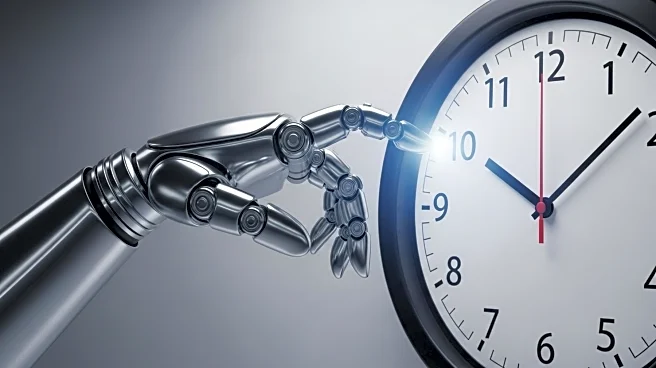What's Happening?
A recent survey by SHRM highlights the impact of AI on job automation, revealing that software engineers and jobs dominated by math and computer functions are most at risk. The survey estimated that 15.1% of jobs held by US workers are at least 50% automated, with 7.8% done by generative AI. However, only about 6% of US jobs are vulnerable due to nontechnical barriers like client preferences and regulatory requirements. The survey suggests that AI may lead to a gradual reshaping of the workplace rather than massive job displacement.
Why It's Important?
The findings challenge predictions of widespread job loss due to AI, suggesting a more nuanced impact on the labor market. While AI can automate tasks, nontechnical barriers may prevent full job replacement. This highlights the need for workers with people skills and problem-solving abilities, as AI technology continues to evolve. The survey provides insights into the future of work and the role of AI in shaping employment trends.
What's Next?
As AI technology advances, ongoing dialogue between employers, workers, and policymakers will be crucial in addressing the challenges of job automation. Companies may need to invest in training and development to equip workers with the skills needed to thrive in an AI-driven workplace. Collaboration between stakeholders will be essential in shaping policies that balance innovation with job security.
Beyond the Headlines
The ethical implications of AI-driven job automation are significant, as the technology challenges traditional notions of employment and workforce dynamics. The impact on societal perceptions of work and productivity raises questions about the role of AI in shaping the future of employment.









